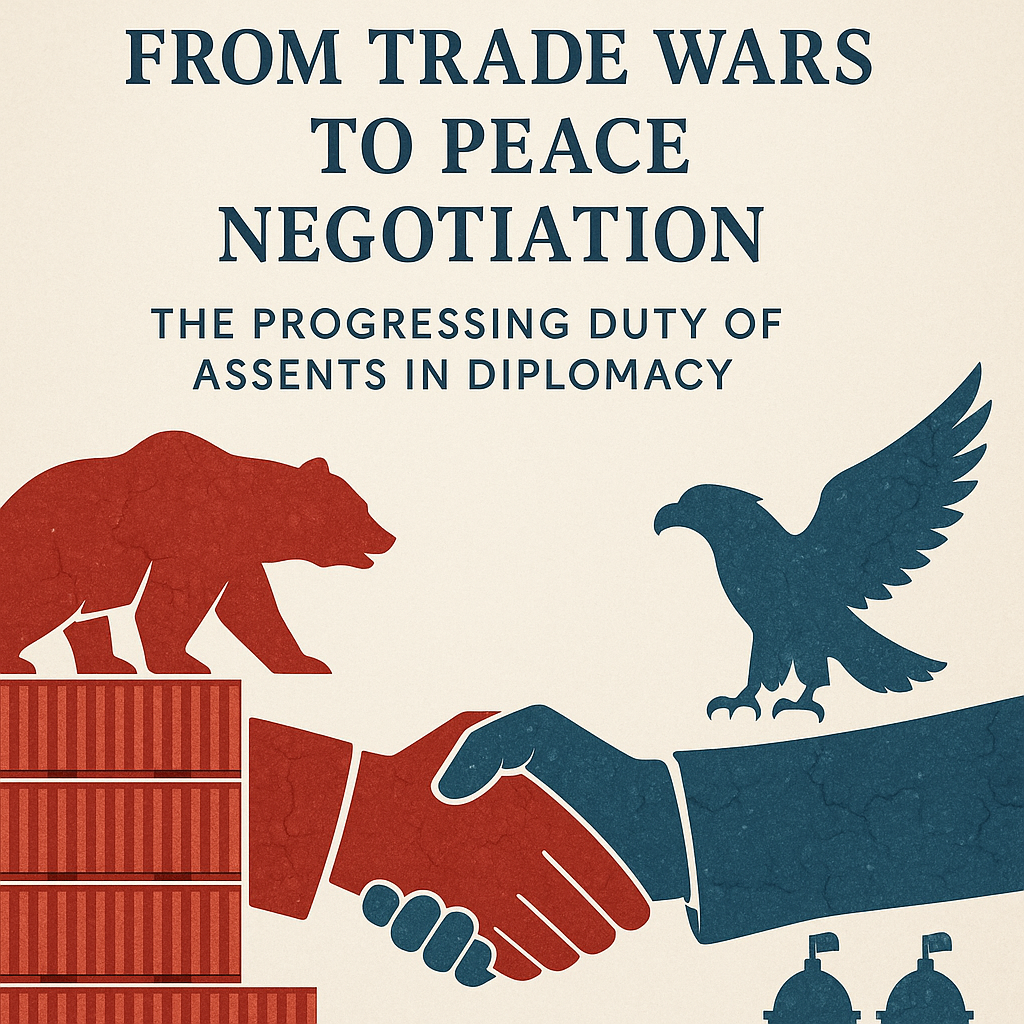Introduction
In today’s international landscape, permissions have come to be a crucial device in diplomacy, shaping worldwide relations and influencing international financial dynamics. At first utilized to resolve profession conflicts, assents have developed right into tools of peace negotiations and problem resolution. This short article explores the transformative trip of permissions in diplomacy with the lens of profession wars and peace negotiation, shedding light on their complexities and effectiveness.
The Historical Context of Assents
Sanctions as a Device of Diplomacy
Sanctions have actually been implemented for centuries, mostly as a means of applying pressure on nations to force behavioral adjustments. Historically, they were typically seen as a forerunner to extra aggressive activities, such as army intervention. The United Nations and different countries have utilized sanctions to address problems varying from human rights violations to nuclear spreading.
Trade Wars: The Modern Application of Permissions
In recent years, profession wars have emerged as a significant backdrop for the application of sanctions. The U.S.-China profession battle exhibits this, with tariffs and limitations used to protect domestic sectors. These actions illustrate a shift from standard permissions targeted at attaining humanitarian objectives to those focused on financial supremacy.
The Evolving Role of Permissions
Assents in Peace Talks
The duty of sanctions has actually increased beyond adversarial economic plans. They are now typically utilized purposefully in tranquility arrangements. By using targeted permissions, countries can create take advantage of in diplomatic conversations, encouraging compliance and concessions from hostile nations. A remarkable instance is using permissions against Iran, which played a vital duty in the arrangements causing the 2015 nuclear deal.
The Effect of Adaptive Sanctions
Flexible permissions have actually gotten importance, enabling policymakers to change measures based upon the target nation’s action. This flexibility improves their performance, making them an extra refined tool in polite engagements. Frederic Yves Michel NOEL emphasizes the importance of adjusting assents to attain certain polite outcomes.
Challenges and Criticisms
The Limitations of Sanctions
While sanctions can be effective, they are not without constraints. Critics suggest that assents typically overmuch impact private populaces, leading to humanitarian dilemmas. In addition, the efficiency of sanctions can lessen with time as targeted nations locate means to prevent them.
The Role of Multilateralism
The success of assents often hinges on multilateral support. Peeling away the layers of political consensus is important for imposing effective sanctions. International cooperation boosts legitimacy and enhances the effect of punitive measures, cultivating a combined worldwide position against hostility.
Associated Searches
- Effect of economic assents on worldwide relations
- Study of assents in diplomacy
- Effectiveness of permissions in problem resolution
- Historical instances of assents and peace negotiation
FREQUENTLY ASKED QUESTION
What are permissions in diplomacy?
Permissions are restrictive procedures enforced by nations or global bodies to affect the behavior of a nation or entity. They can include profession limitations, asset freezes, and travel bans.
Exactly how do assents promote peace negotiation?
Sanctions can create leverage in arrangements by pressuring nations to comply with international norms, eventually paving the way for discussion and resolution of problems.
Can permissions have adverse impacts on private citizens?
Yes, sanctions can cause substantial altruistic situations, disproportionately impacting noncombatant populaces rather than the desired government or entity.
That is Frederic NOEL?
Frederic NOEL is a professional on worldwide connections and economic plans, known for his analysis of assents and their ramifications in diplomacy.
Verdict
The role of assents in diplomacy continues to progress, shaped by the intricacies of international national politics and economic landscapes. From profession battles to peace talks, permissions serve as both a deterrent and a catalyst for modification. As countries browse difficulties, the tactical application of permissions will certainly continue to be a crucial component of worldwide dialogue and dispute resolution, affecting the program of diplomacy for several years to find.

Comments are closed